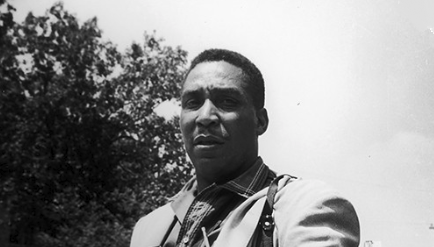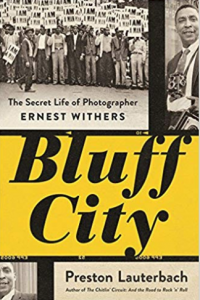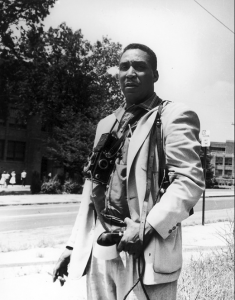
Secret life of black civil rights photographer in Memphis



Memphis, along with Atlanta, central to story of black America, located on the Mississippi River, a starting point for refugees from the Deep South where they can engage with its vibrant African-American culture and heritage. The city produced music and art and also black empowerment WDIA, “ the mother station of Negroes” – Although white owned was the first radio station to broadcast all-black music with black radio jockeys. Elvis Presley sought out shows on Beale Street, and a few years later, converted theatre on McLemore Avenue became Stax records, which helped give birth to modern soul music. Memphis was also crucial to the civil rights movement, home to a black newspaper, the Tri-State Defender , that Chronicled its rise, and credited Ernest C Withers, an ambitious black man who’d learnt photography in the army and knew “ Pictures tell the story”.
Among the stories told by Withers was the moment in the1955 trial of men accused of killing teenage Emmett Till, when Till’s uncle, Moses Wright, pointed at JW Milam, one of the accused. Another was of an exhausted Martin Luther King lying on bed in the Lorraine Motel, where he would be shot on a subsequent visit. Withers seemed omnipresent in his passion tell the story with pictures.
Withers while a proud “race man” as the term was, also an FBI informant.
Preston Lauterbach’s Bluff City, gives a fair description of Withers’ complex life, by throwing light into Withers secret including the movement for voter registration and integration of lunch counters and public schools was perceived as being communist-inspired, despite the paltry number of actual communists. Much of this fear was generated by then FBI director J Edgar Hoover, who was so-obsessed that he seemed, at times, to prefer chasing red demons to actual organised crime.
Withers did have tenuous connections to communists. He was also suspicious of the younger activists who were promoting black power over integration and direct action over passive resistance which led him to some more militant young men he knew who styled themselves the Invaders and Withers job was to keep tabs on them.
Bluff City tell the story of civil rights in Memphis in the 1960s, framing it with Withers biography, and ending it with the sanitation workers’ strike that would bring the King to town. and to his death, reminder of the times when sometimes people do the wrong thing for what they perceive is the right reason.
Bluff City: The Secret Life of Photographer Ernest Withers by Preston Lauterbach, WW Norton $27.95, 339 pages.
